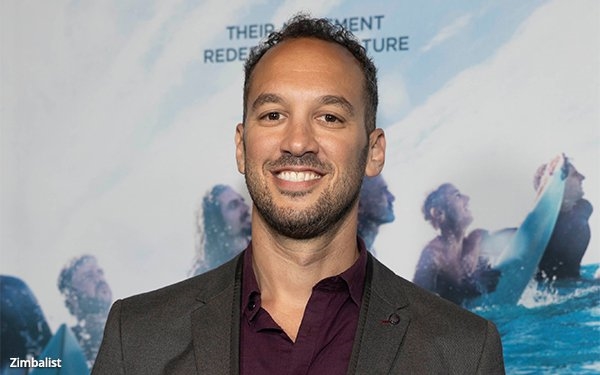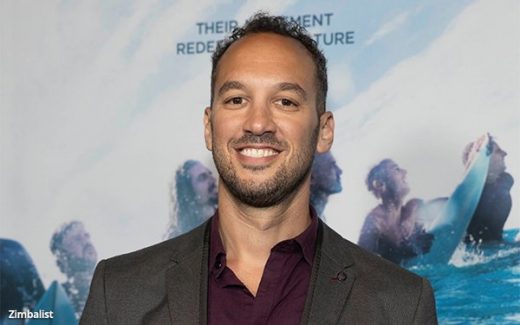Apple TV+ Documentary Provides Intimate Look At Super League Crisis, Soccer And The Human Angle
Apple TV+ Documentary Provides Intimate Look At Super League Crisis, Soccer And The Human Angle

The hidden gem in Apple TV+’s new documentary “Super League: The War for Football,” directed by Jeff Zimbalist and released Friday, is the importance of telling a balanced story. It’s more than a story about football (soccer in the U.S.) and the future of the sport. It provides an intimate look into human behavior and society.
“It shows how one side’s ability to reach the masses with their storytelling was more effective than the other sides,” Zimbalist said.
Zimbalist’s team convinced UEFA President Alexander Ceferin and Italian businessman Andrea Agnelli to share intimate details of business and family life. Through Ceferin’s eyes, the series shows betrayal, lies and deception, making it clear that he doesn’t see business as business and friendship as friendship, but rather that people must follow a code of conduct and morals regardless. Agnelli has a different philosophy. He felt betrayed first.
The Apple documentary is different from others in that it presents arguments from all sides rather than just the backlash and victory for fans. The series took about a year and a half to create. Each of the four episodes is one day that unfolds with a ticking-clock graphic, going back and forth in time throughout to give several points of view.
“We were given once-in-a-lifetime access to the backrooms of many of these major governing bodies and clubs,” Zimbalist said.
The crew filmed in summits, private meetings, offices, and peoples’ homes, combining the moments with archival footage that existed during the four days in April 2021 that included press conferences and protests in the streets, and more.
“We tried to make it feel character-driven, experiencing it through the eyes, and in the shoes, of decision makers on all sides to create a personal story with universal themes of betrayal and alliances, and secret plotting.”
Zimbalist said these were no mechanical strategists in the high tower, but rather humans with all the same dimensions and universal flaws. “It does not have clear-cut villains and easy answers.”
The documentary’s message is the bigger questions such as “how we govern culture? Can culture be owned and, if so, who is the rightful owner?”
Zimbalist believes the sport is going through an identity crisis. In other words, is football/soccer a social democracy or a capitalist entertainment business?
There is a tug of war going on between ideals and mythology of the working-class roots of the sport and the inevitable present-day circumstance, he said. The fan, ideally, has a voice in writing the future of the sport, but one question debated in the series — whether that’s really true.
“Both sides — the Super League and the status quo establishment UEFA side — claim to do what’s best for the fan,” Zimbalist said — “one by protecting tradition. The other by saying look at the writing on the wall. This is a house of cards. It will collapse if we don’t change something. We need to innovate and evolve.”
The goal of the documentary is to engage audiences in those debates and ask the questions — not just about sports, but about society.
Zimbalist played soccer growing up. He also created several documentaries, docuseries and scripted films that look at the sport as a macrocosm, with an effort to show how through the mirror of soccer can we see the shifting values of society in a moment of time.
“When this all went down, I had a million questions. What does this mean for the sport, for one, but what does it say on where we’re at as a society. I found it surprising that the fans claimed victory. I was sure that the court of legal opinion would overrule the court of public opinion. It was a refreshing example in capitalism being heard. Some will debate if that’s true, but I prefer to believe that there was an impact. The Super League in the documentary, he said, tells that story very differently.
Zimbalist cites the biggest challenge. “It was one thing to sit down and have interviews with very wealthy and protected players, and another to get them to open up and be very dimensional about their experience to talk about emotions and mistakes,” he said. “All to close the gap between the fans and billionaire club owners.”
Zimbalist, maker of “The Two Escobars” and “Pele: Birth of a Legend” films, has other plans to work with Showtime, which has not been announced, another sports project, and one on crime.
“I love being thrown onto subcultures and worlds that I may not know a ton about and getting access to the lives and psychologies of the main thinkers in those worlds,” he said. “This was a once in a lifetime opportunities.”
(20)


